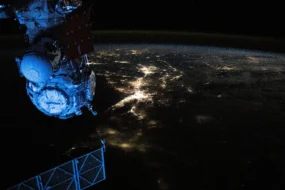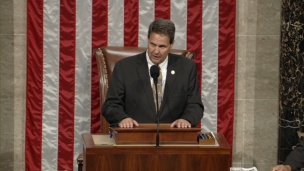NOAA’s FY 2026 budget proposal, released yesterday, includes plans to gut the Office of Space Commerce (OSC) and terminate federal funding for the Traffic Coordination System for Space (TraCSS).
While internal memos in April revealed the Trump administration’s designs to push the system into the private sector, the Congressional justification document formalizes the agency’s plan. The proposal would reduce the OSC budget to $10M—down from $65M in 2024—and make significant reductions to the small staff.
Give and take: TraCSS was once a signature Trump policy. Stemming from Space Policy Directive-3 during the first Trump administration, its goal was to centrally house DoD and commercial SSA data inside the OSC. By doing so, TraCSS would create a single source of reference for satellite operators looking to stay out of each other’s way.
Now, that same directive might be the undoing of TraCSS.
NOAA argued that the OSC was unable to build TraCSS by the end of the Biden administration—even though TraCSS first started beta testing in September, while Biden was still in office. The agency also found that commercial SSA companies and the DoD have become sufficient to satisfy the SPD-3 mandate to manage traffic on-orbit between themselves.
Enough isn’t enough: Not everyone is convinced, however. Richard DalBello, OSC’s director under the Biden administration, told Payload via email that the proposal reveals a “fundamental misunderstanding” of TraCSS.
“DoD lacks both the institutional focus and the capacity to manage safety across a rapidly expanding commercial sector,” DalBello said. “No single company offers a unified, authoritative capability that can support the broader public interest—or meet global coordination needs. That’s precisely why TraCSS was created.”
NOAA and OSC did not respond to Payload’s request for comment in time for publication.
The loss of TraCSS as that central location could push satellite operators to subscribe to a patchwork of SSA services, or look internationally to cover their bases—such as Europe’s TraCSS alternative, EU SST. That might not be sufficient, however, as members of both tracking systems found in 2024 that TraCSS would offer an upgrade to EU SST.
“TraCSS is more than a technical service—it is a diplomatic lever. The U.S. has a strategic interest in shaping the rules of the road for space. Walking away now would silence our voice at the very moment international norms are beginning to take shape,” DalBello said.




